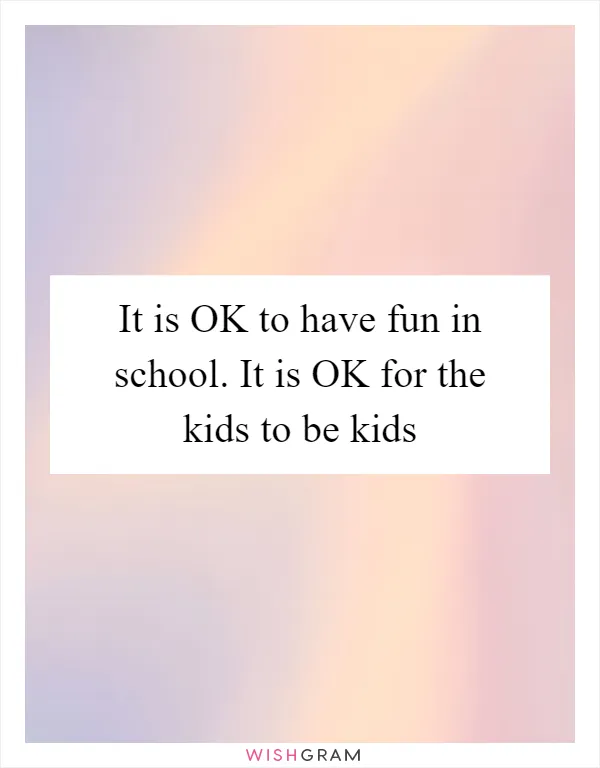It is OK to have fun in school. It is OK for the kids to be kids
As educators, it is crucial for us to create an environment where students feel comfortable and encouraged to have fun in school. It is essential to recognize that children are naturally curious, energetic, and playful beings. By embracing their innate desire for enjoyment, we can foster a positive and engaging learning atmosphere that promotes their overall development.
First and foremost, it is important to acknowledge that having fun in school does not equate to a lack of discipline or focus. On the contrary, incorporating enjoyable activities into the curriculum can enhance students' motivation, creativity, and critical thinking skills. When children are actively engaged and enjoying themselves, they are more likely to retain information and actively participate in classroom discussions. By infusing elements of fun into our teaching methods, we can create a dynamic learning experience that caters to diverse learning styles and keeps students excited about coming to school.
Furthermore, allowing children to be kids means recognizing and appreciating their unique personalities, interests, and strengths. Each student has their own set of talents and abilities, and it is our responsibility as teachers to nurture and celebrate these individual qualities. By providing opportunities for self-expression, such as through art, music, or physical activities, we can help students develop a sense of identity and build their self-confidence. Allowing them to explore their passions and pursue their interests not only enriches their educational journey but also prepares them for a well-rounded and fulfilling future.
In addition to academic growth, it is crucial to prioritize the social and emotional well-being of our students. School should be a safe space where children can build friendships, develop empathy, and learn essential life skills. By incorporating cooperative games, team-building exercises, and open discussions into our classrooms, we can foster a sense of community and teach students the importance of collaboration and respect. These experiences not only contribute to their personal growth but also equip them with the necessary tools to navigate relationships and challenges outside of the school environment.
As teachers, it is our duty to create a positive and inclusive atmosphere that encourages students to embrace their individuality and enjoy their time in school. By affirming that it is okay to have fun and be kids, we are sending a powerful message that their happiness and well-being matter. Let us remember that education is not solely about academic achievements but also about nurturing the holistic development of our students. By prioritizing their joy, we are laying the foundation for a lifelong love of learning and empowering them to reach their full potential.
